Author Cónal Creedon relishes his memories of a summer vacation spent with his Uncle Jack, in his mother's picturesque homeland of the Beara Peninsula, in West Cork.
My mother told of her loneliness when she first came to live in Cork City. On summer evenings, she would look westward and her heart would sink as the setting sun faded behind this urban horizon of cracked chimney pots and slate clad-buckled beams — her mind would carry her west, out of the city and all the way to a hillside farm on the Beara Peninsula, where she and her nine sisters were born and reared.
She sometimes spoke of crystal clear mountain lakes, sparkling like sapphires, along the craggy spine that runs the full length of the peninsula, all the way to the copper mines that sweep down to the white sands at Allihies. She said Beara had a coast of breathtaking beauty, a dramatic shoreline carved by the pounding of the wild Atlantic Ocean and kissed by the warm stream from the Gulf of Mexico bringing with it a hint of sub-tropical paradise.

Allihies, County Cork.
By contrast, downtown Cork City, where I grew up, may as well have been a thousand miles away from the crashing waves, the rolling hills, and the intoxicating solitude of Beara.
My home was an extremely busy household -- 12 siblings, my mother and father, two aunts, and a string of guests who came to dinner and stayed.
Read more
And, as if that wasn’t hectic enough, our front room had been converted into a corner shop sometime back in the late 1800s, so the door was always open, making our home a very public house, with people coming and going, morning, noon and night. “It’s like Piccadilly Circus,” my mother used to say.
Holidays come and holidays go, but there is one holiday that stands head and shoulders above all the rest. I was nine going on 90; past the age of reason and wise beyond my years. My Auntie Kit came to visit my mother in Cork, and I traveled west to spend the week with my Uncle Jack.
I remember that first morning in Beara. Peering from my bedroom window, I was struck by the clarity of the light, the expanse of the landscape, and the silence. South of the house, a patchwork of sweeping fields, crisscrossed by stone walls built by generations of bare Beara hands, led all the way down to the Atlantic Ocean and Bantry Bay.
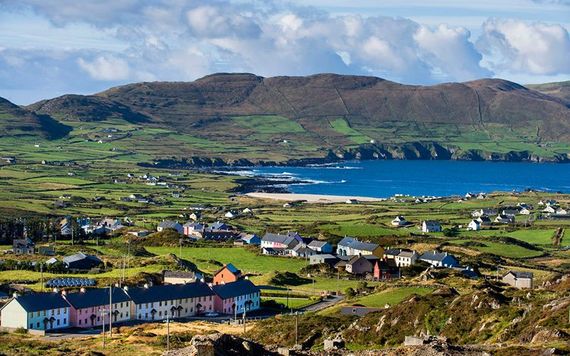
Beara Peninsula.
Me and Uncle Jack quickly established a comfortable rhythm. My first task each morning was to release the hens and collect the eggs, while Uncle Jack busied himself tacking the horse with bridle and harness.
Then, the unmistakable sound of iron-shod hooves and steel-clad wheels on stone, and with a hop, skip, and most almighty jump, I’d launch myself up onto the cart next to Uncle Jack and we’d trundle out of the yard.
Shep the dog, weary of keeping pace, would leap on board and snuggle in between us. And that’s how our day began, the three amigos heading east towards Johnny the Cross with our cargo, a churn of freshly squeezed creamy milk.
The barn bulging with that season’s hay, Uncle Jack turned his hand to draining the boggy field, north of the house. Channels were dug and backfilled with stone: large rocks first, followed in decreasing size down to gravel in a tradition that had been handed down from father to son since Neolithic times.
Each day with Uncle Jack was an adventure, like that time we were herding cattle along the road. I was Billy the Kid on point, guiding them left into the yard. But the wise old Kerry Cow realized that the Kid was but a boy, and challenged my authority. In my moment of hesitation, the Kerry Cow took the initiative and turned right.
“Go NORTH of her!” shouted Uncle Jack. “Go NORTH!”
“Which is my NORTH hand-side!” I roared.
Uncle Jack just laughed, and the Kerry Cow, in her own confident and defiant way broke ranks and walked past me in the direction of Castletownbere.
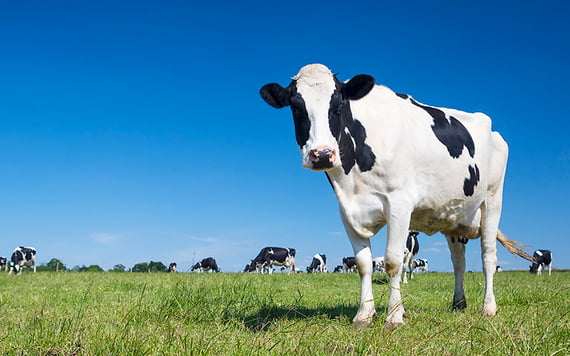
"The wise old Kerry Cow realized that the Kid was but a boy, and challenged my authority."
“The problem with using left-hand-side and right-hand-side is that it changes depending on the direction you are facing,” explained Uncle Jack. “But the points of the compass always remain constant because they radiate from a fixed center. The trick to finding a true direction in this world is to remain centered.”
Me, my Uncle Jack and Shep sitting on the stone wall south of the house, that’s where you’d find us, every evening when the day’s work was done. Sometimes Uncle Jack would talk. Sometimes he would listen. Sometimes the solitude remained intact until he sang a verse of a song, “Silver Threads Among the Gold.”
On one such evening, just as darkness was coming in, I pointed to the headland on the far side of Bantry Bay.
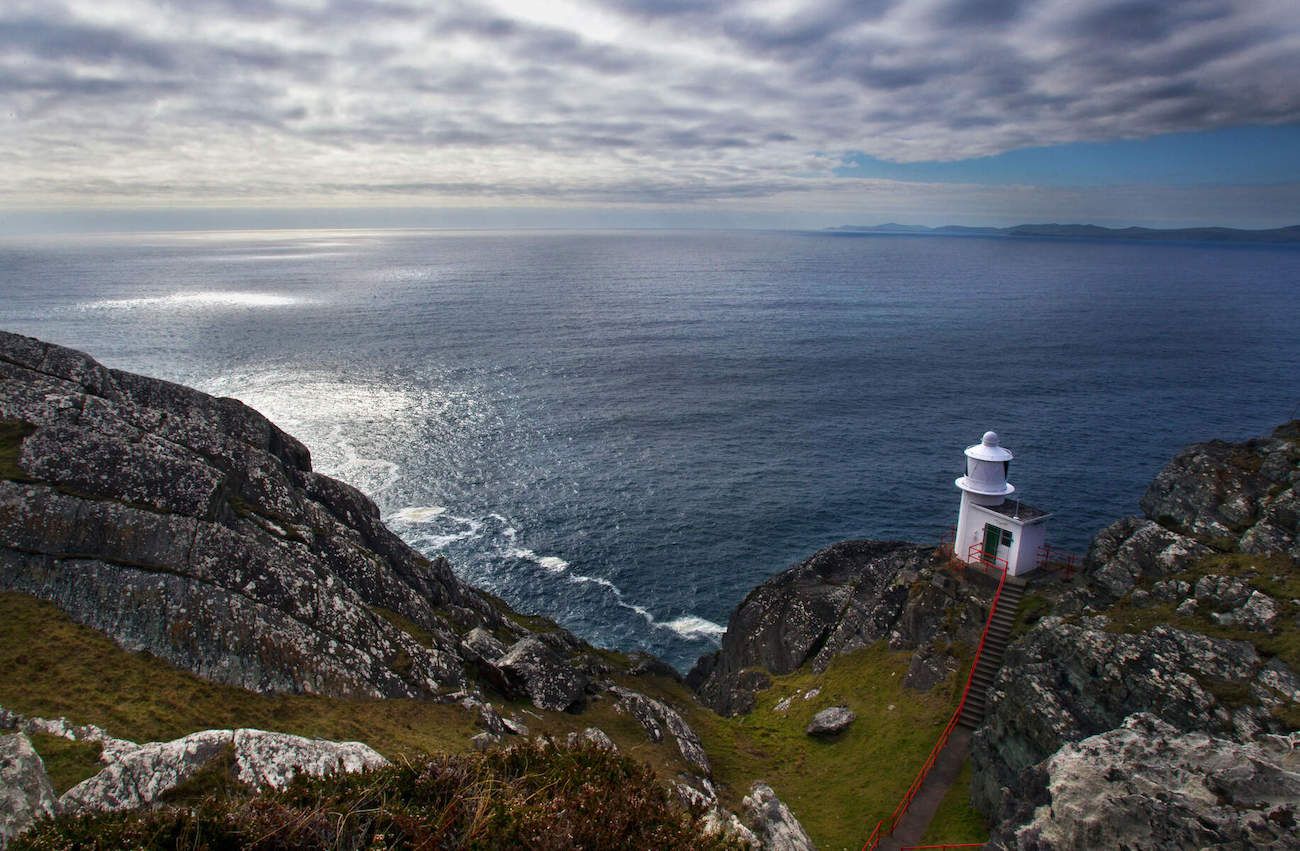
Sheep's Head.
“What’s that over there, Uncle Jack?”
“That’s Sheep’s Head,” he said.
“And is Sheep’s Head a nice place, Uncle Jack?”
“Sheep’s Head is one of the nicest places on this Earth,” he said. “ I hear it’s almost as nice as Beara.”
Read more
And that was the magic of Uncle Jack. Like the points of the compass, my Uncle Jack was centered. Beara was his universe, and he instilled in me the importance of, sense of place and a love of place.
Night after night, I’d sit on that low stone wall, transported to a magical world by tales of the townland: piracy, the Spanish Armada, and how Wolfe Tone guided the French Fleet into these waters.
He told of his namesake, Michael O’Shea, and the gallant rescue of Calf Rock, and the bizarre story of Mick Kelly, the only man with the distinction of smoking a pipe at his own funeral…
“This is Beara…” he’d say.
He conjured up a mystical land where the Demon Hound of Lough Mór warned of impending doom, and the lonesome cry of the Bean Sí swept along the crest of Crooha, from Leitrim Beg all the way down into Kilcatherine.
This is Beara, where the last clan of the Ancient Gaelic Order made their stand against the English Crown at Dunboyne.
This is Beara where the finest gentlemen of Queen Elizabeth’s court, Captain John Bostock and Commander George Carew, crossed Dursey Sound and wilfully slaughtered 300 women, children, and elderly.
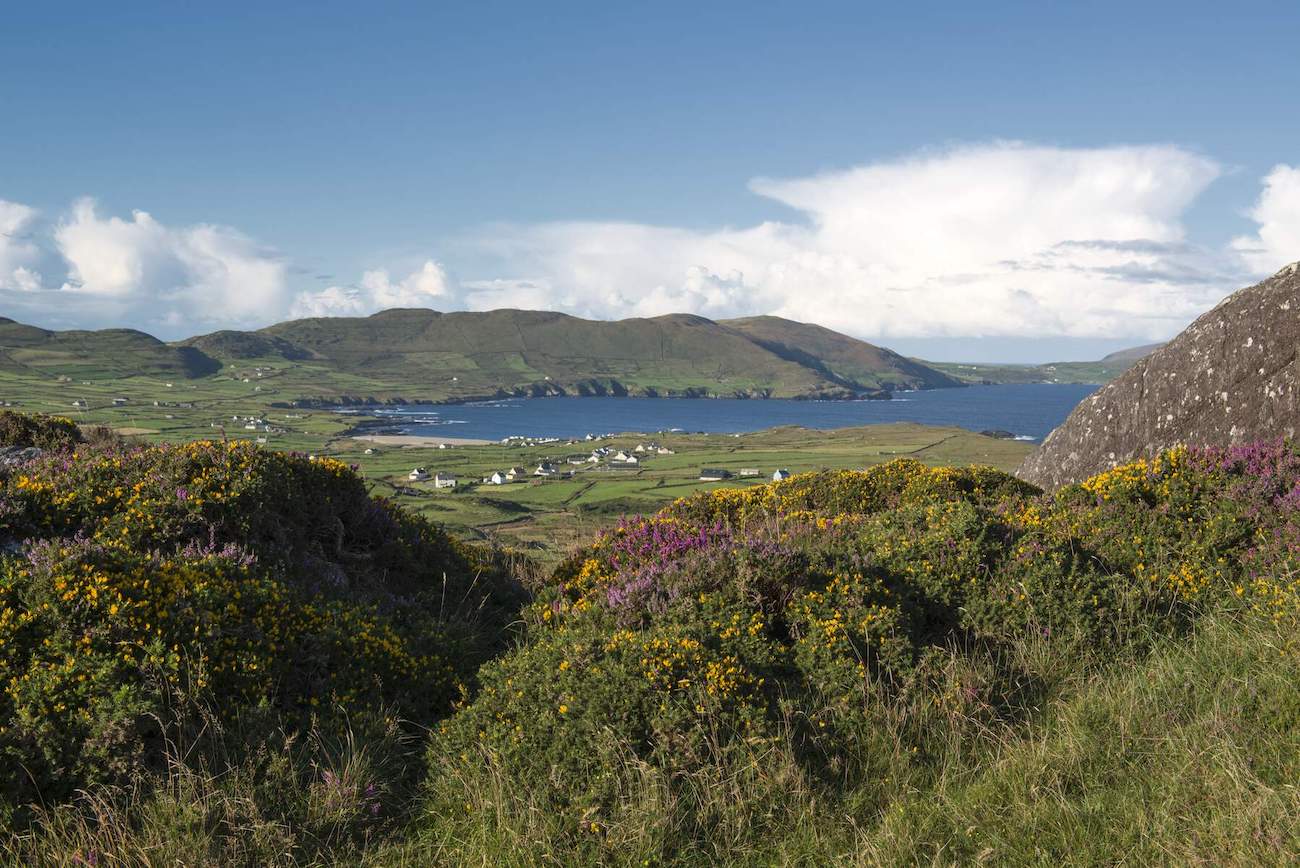
Dursey Island.
This is Beara, where O’Sullivan Bere led the remnants of his people on an epic march to Leitrim, and only a handful survived to tell the tale.
This is Beara, where the Mountain Ram is the king of all that he surveys, and the regal splendor of the ancient Cailleach is the queen of the Corca Dhuibhhne and the Corca Laoigdhe.
This is a land where history and story go hand in hand, fact and fiction dovetail together seamlessly, and the spiritual and the natural complement each other without contradiction or contrivance.
And every evening drew to a close with Uncle Jack’s immortal words: “You go up and make sure the chickens are safe from Mr. Fox. I’ll go in and warm some milk and honey.”
This is Beara, a land shaped by the people and a people shaped by the land. This is Beara, the land of milk and honey.
* Cónal Creedon’s novel "Begotten Not Made" (Irishtown Press) is the winner of the Eric Hoffer Award USA, winner of Bronze Award New Generation Book Award USA, and nominated for the Dublin International Book Award. It is available on Amazon.
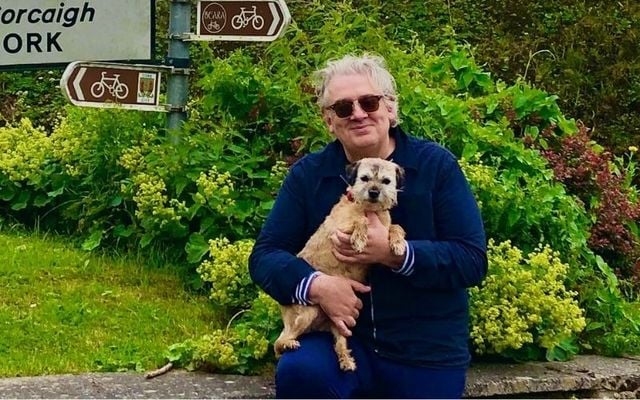



Comments